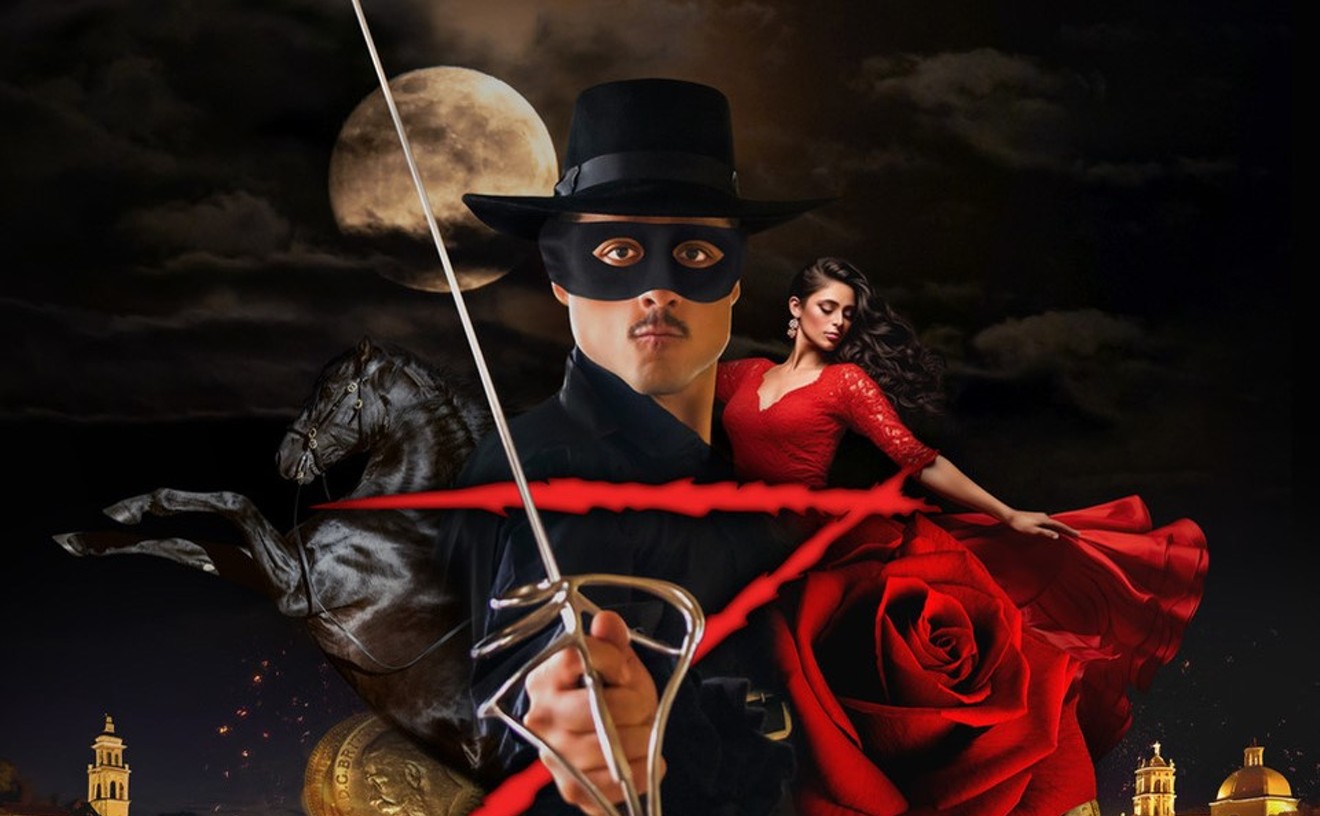Somehow, I missed the whole storytelling movement.
I wish I could tell you it's because I was learning how to use my new iPhone, or that I was so distracted by my Twitter account that the entire storytelling fad passed me by. But I'm a low-tech fogey. My phone is not smart; I don't tweet. Still, I failed to notice when this old-time form of public narrative became new and hot again — because I wasn't paying attention. I was probably reading a book.
Storytelling — a public event at which amateur "tellers" stand up before a crowd in a bar or a restaurant — is as hot now as poetry slams were in the mid-'90s. It's especially hot here: Google "storytelling" and you'll find that three of the top 10 items mention Arizona, probably because Southwestern culture is based in the traditions of Native American storytellers and 19th-century cowboy poets.
These are not new forms, according to Liz Warren, faculty director at South Mountain Community College's Storytelling Institute. "Poets and storytellers have competed for millennia," she told me last week. "Lately, the form has been reanimated, partly in response to our reliance on electronic devices. People who are worried that we're spending too little face-to-face time have revived the art of public storytelling."
I must have been out shopping for nibs for my quill pen, because I missed that revival. So when Megan Finnerty, an Arizona Republic editor who's been running a project called Arizona Storytellers, asked if I wouldn't like to come tell a holiday-themed story at her next "telling," I said, "Sure." I've been reading first-person essays in public for years; it's a great way to get readers' reaction to a personal essay.
A few days later, we met for coffee to discuss what I was planning to read, and I bragged that I was already half-done writing a new essay for her.
Megan held up a perfectly manicured hand. "You're not going to be reading an essay," she said. "This is storytelling."
I must have looked confused, because Megan spoke more slowly. "You won't have a polished story that you've written ahead of time," she said. "You won't be reading from pages or have notes to work from. It's storytelling. Right?"
"Of course!" I lied. "Storytelling!"
Back at home, I headed straight for Google and boned up on the whole storytelling craze. It is, I discovered, a means of sharing an idea without help from the narrative tricks I'd learned as a writer of creative nonfiction — setup, declaration, repeated thematic points. It was, very simply, telling a story: conveying events with simple, unpolished language, with no worry about brevity or point-making or style.
I was out of my element. I had agreed to do something I knew nothing about and wasn't even sure I liked the idea of.
In the end, I cheated. I wrote an 800-word essay about the day I discovered there was no Santa Claus, and I memorized it. A few days later, I attended a coaching session with Liz Warren and the 10 other "tellers" with whom I'd be appearing at the Republic event. The first storyteller stood and told about her 4-year-old daughter's joy on discovering presents under the tree on Christmas morning. It was a pleasant tale that ricocheted from point to point and never settled anywhere — it was, I decided, the kind of story one heard at a cocktail party or over the phone while chatting with a friend. When she was done telling it, everyone applauded. Then someone stood up and talked about the time he and his grandfather cut down a Christmas tree together, and the tree was too tall to fit into his grandma's living room. Applause. The next yarn was about how the storyteller discovered that Walmart doesn't offer Christmas layaway. More applause; I caught someone wiping away a tear.
Then it was my turn. I got up and recited my story about how my discovery at age 9 that Santa Claus was a lie had led to a life of atheism and bitterness. I'd used a traditional, print-narrative rhythm — setup, point made; setup, larger point made; revelation; moral — and shoved in a couple of quippy turns of phrase to lighten the mood. And when I finished, everyone just sat there. Not applauding.
Liz Warren gave me some notes about maybe making the piece less of a downer, and then the next guy stood up and told about how he'd discovered that there was no such thing as a Chanukah bush — a nice, rambling story that was greeted with wild applause.
I showed up at the storytelling event — which was being presented in a big, fancy room at the Arizona Biltmore — feeling like a traitor to both the spit-polished rules of good writing (because this storytelling thing was about something else altogether) and to the form of storytelling itself, since I'd written and memorized my story.
Afterward, people came over to say nice things about my sad Santa story, even the gal who'd brought her 6-year-old, not knowing there'd be someone up on stage who'd be blowing the whistle on Old Saint Nick. I was trying to flee — to put some distance between my love of a well-buffed sentence and the more casual version I'd just participated in — when a woman I'd met before stopped me near the door.
"You know," she confided, hanging on to my arm, "I've seen you before. You usually read right from papers, and you only glance up at the audience. Tonight you really looked at us and talked to us. It was nice!"










